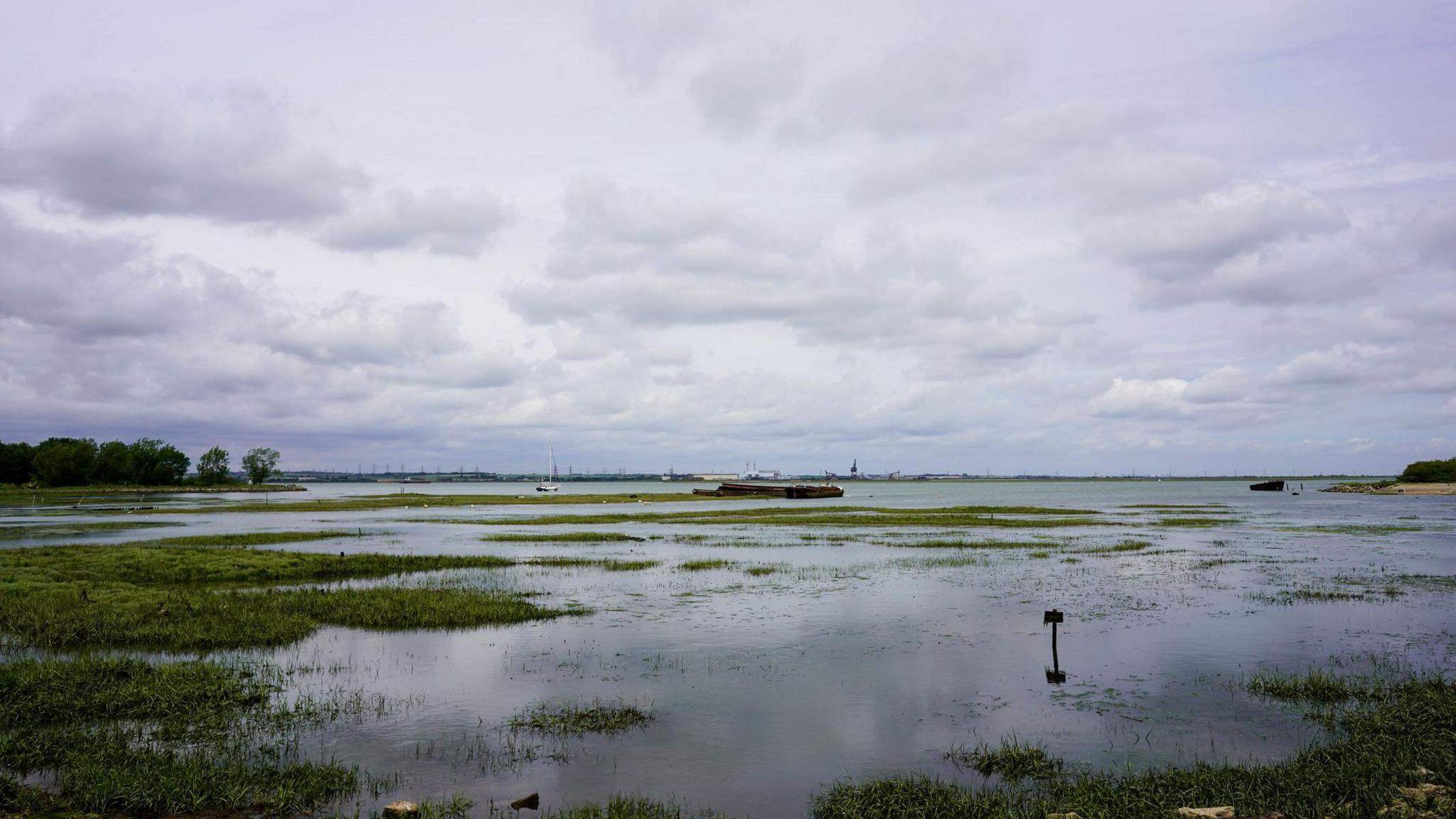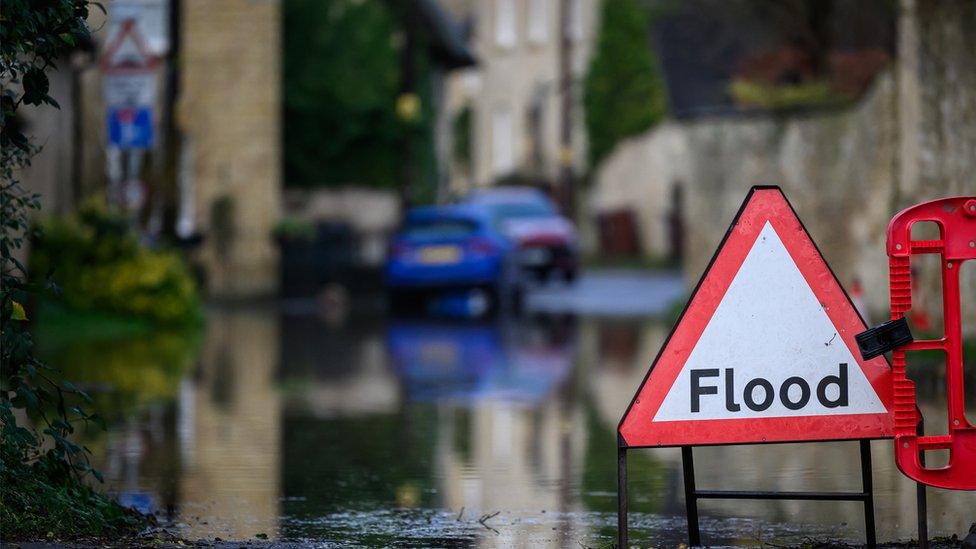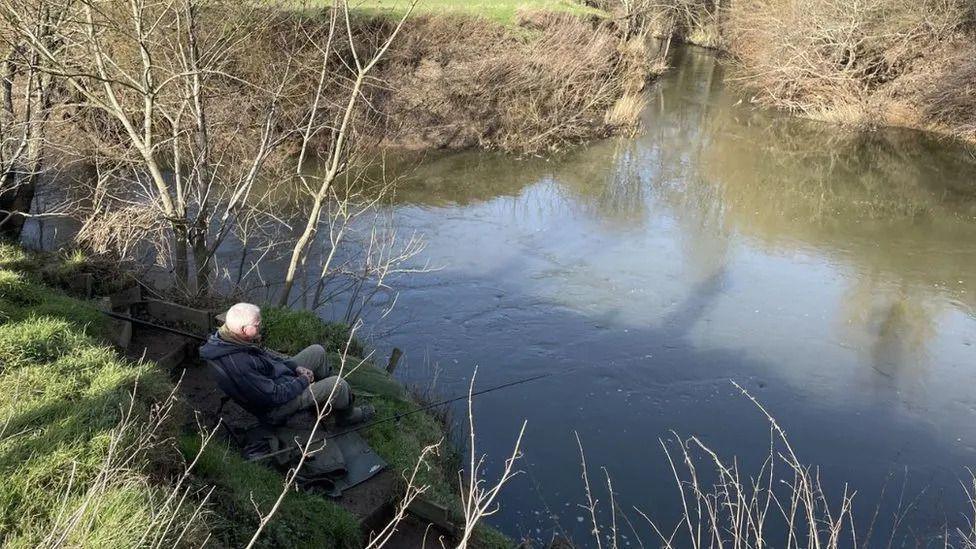'Estuaries risk losing important habitats' - study

The Medway estuary has been named as among those at most risk of losing important habitats
- Published
Two estuaries in the South East are among those most at risk of losing important habitats to rising seas and human development, a study warns.
The Medway estuary in Kent and Ouse estuary in East Sussex have been identified as having their habitats "squeezed" out by rising seas, lower summer river levels and man-made barriers such as weirs and dams.
Estuaries are key for wildlife such as wading birds, as breeding and nursery grounds for commercially important fish, and for storing carbon and improving water quality.
Dr Sally Little, an estuarine ecologist at Nottingham Trent University, said we now "risk losing some of them completely".
Researchers say findings also show the opportunity to recreate the wildlife-rich tidal freshwater marshes and wet woodlands that once lined the top of many of the UK's estuaries.
Recreating these marshes in the right estuaries would help combat estuarine squeeze, while also helping to improve water quality, store carbon and boost wildlife such as endangered European eels and migrating water birds.
Dr Little said: "Tidal freshwater and low salinity zones at the top of our estuaries are crucial.
"They are home to many different plants and animals, are productive, help store carbon, cycle nutrients and improve water quality.
"They are also critical habitat and corridors for migratory fish moving between river and sea.
"Many of these zones are being squeezed due to climate change and development, and we now risk losing some of them completely.
"Our study underscores the urgent need for monitoring and management, but it also presents a unique opportunity to compensate for their loss through the creation of tidal freshwater marshes," she said.
Additional reporting by PA Media.
Follow BBC Kent on Facebook, external, on X, external, and on Instagram, external. Send your story ideas to southeasttoday@bbc.co.uk, external or WhatsApp us on 08081 002250.
- Published15 January 2024

- Published19 August 2024
